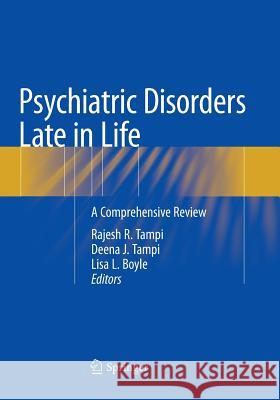Psychiatric Disorders Late in Life: A Comprehensive Review » książka
topmenu
Psychiatric Disorders Late in Life: A Comprehensive Review
ISBN-13: 9783030103118 / Angielski / Miękka / 2019 / 416 str.
Kategorie BISAC:
Wydawca:
Springer
Język:
Angielski
ISBN-13:
9783030103118
Rok wydania:
2019
Wydanie:
Softcover Repri
Ilość stron:
416
Waga:
0.73 kg
Wymiary:
25.4 x 17.78 x 2.21
Oprawa:
Miękka
Wolumenów:
01
Dodatkowe informacje:
Wydanie ilustrowane











